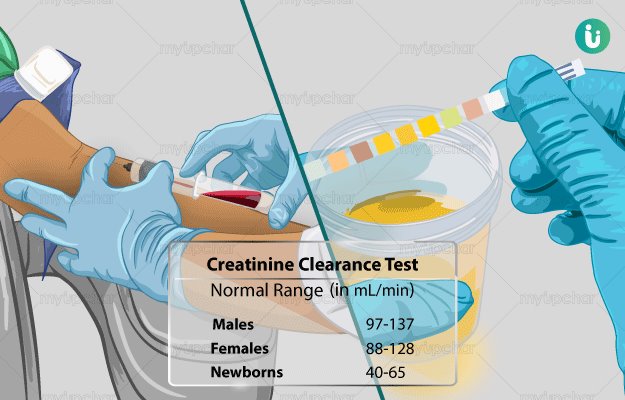What is a Creatinine Clearance test?
A creatinine clearance test is a combination of blood and urine test to check kidney function. Creatinine is a waste product produced by the body, which is removed through the process of filtration in kidneys. It circulates in the bloodstream and gets eliminated with urine.
The amount of creatinine produced is dependent on the muscle mass of the body, whereas the removal of creatinine from the blood is dependent on the filtering capacity of kidneys along with the rate at which filtration is carried out. The amount of blood filtered per minute is known as the glomerular filtration rate (GFR). Thus, a reduction in the GFR indicates reduced kidney functioning.














